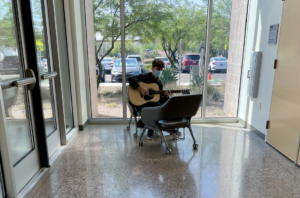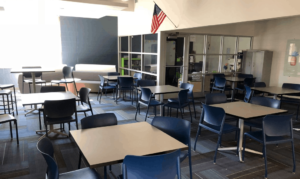There Is No Local Control
National Journal suggests that it’s conceivable that a gutted ESEA could be reauthorized around the idea of local control. That would make the Tea Party and NEA, the odd edu-bedfellows, very happy. Here’s the problem.
It’s ironic that the republicans are ready to give up on accountability and hand schools back to the employees.
It would be logistically possible to offer every student in American at the beginning of the second semester the opportunity to take any foreign language and any AP or advanced STEM course online. States could save hundreds of millions and quality would be consistently high. Local control stands in the way.
Local control of education is an American anachronism corrupted beyond repair in urban areas and antiquated by innovation.
NCLB was a bipartisan attempt to enact a good school promise–that every student and every family in America deserves access to at least one good school in their community. It was enacted because states were derelict in addressing chronic failure particularly for low income and minority students.
The way to make control really local is to make every school a charter school authorized by the state–high standards for quality, full parent choice, and statewide online and blended options.








sandy kress
Right on, Tom!
Federalists need lessons in the "blockage in the arteries" that has occurred in many of our states and school districts. I wonder if many of these opinion leaders and politicians are actually active in these school districts, i.e., voting, serving on boards, following budgets closely, seeking options for their children, and the like.
I served on a big city school district board of trustees. I wish these "local control" folks could have had even a few months of my experience.
George Washington was worried about how well our institutions would actually do at educating our citizenry, wrote about it with concern, and proposed some, God forbid, national solutions.
Maybe modern-day politicians of all political stripes would pull up out of their rhetoric and ideology and learn and think about their real interests, as well as those of the children of the nation.
And, if they really want "local control," they'll consider some of the solutions you propose here.
Replies
Tom Vander Ark
Learning online is the first massively scaleable solution we've had the chance to consider. It took 20 years to get 1.5m kids in charter schools and there are more than that learning online despite huge barriers. Every student in America should have access to great teachers and a great education--distance is no longer a problem, but the way we 'govern' America's schools is.
Ed Jones
Repeal the Hatch Act exemption for education workers?
Ed Jones
Tom, this is seriously a tough one. Of course, I wouldn't have given up a profitable defense systems career for the squalor of ed-tech advancement if I didn't believe. But there's another perspective.
Look at this map: counties. See the red spots? Those are the places where education--and some local control--mostly works. The blue ones are largely the places where education is more dysfunctional.
So turning over schools to a scaled up CMO isn't necessarily a sell-able solution to these people. Feelings aside, working toward a Verizon/AT&T/Google/Apple modeled big company management of their kids schools may be not that appealing.
Replies
Tom Vander Ark
Local control is less bad some places, no question. But even functional districts do a lousy job of serving low income and minority students; it's generally a disaster in urban areas. As Paul Hill, CRPE, and Marc Tucker, NCEE, have suggested local councils can provide important input on the key question, "What kids of schools do our students need?" They can also help leverage local community assets. But we must start unwinding this guidance function from school operation particularly as the unbounded opportunities of learning online bump into the parochial (budget focused) interests of districts.